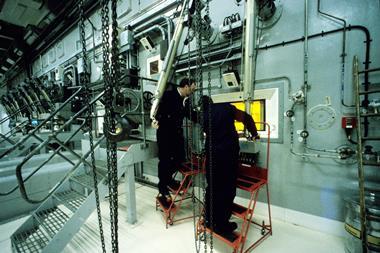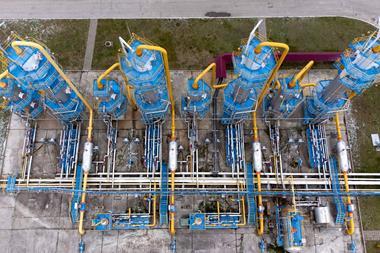The European parliament voted on Wednesday to include gas and nuclear investments in the EU’s list of ‘environmentally sustainable economic activities’. Critics of the decision argue that it threatens Europe’s climate ambitions and undermines efforts to prevent greenwashing.
Earlier this year, the European commission proposed adding nuclear and gas investments to the EU taxonomy – a classification system designed to support the European green deal by directing investments towards clean energy. The European parliament has now approved the proposal. 278 of the parliament’s 639 lawmakers voted against the redefinition.
With a majority of EU member states set to back the decision, the parliament’s vote paves the way for the proposal to become law. After the vote both Austria and Luxembourg, as well as the environmental campaign group Greenpeace, said they would seek to challenge the law in court.
The European commission has said that investments in gas and nuclear energy will only be considered green if they are used to replace dirtier energy sources like coal and oil. However, energy policy experts have warned that the EU’s current drive to secure gas will make it harder for poorer parts of the world to make their own transitions away from coal.
The decision means that from 2023 investors will be allowed to market investments in fossil gas and nuclear power plants as green. The European commissioner for financial markets Mairead McGuinness welcomed the move, describing it as ‘pragmatic’. ‘Our proposal ensures transparency so investors will know what they are investing in,’ she said. ‘Today brings much needed clarity to the EU position.’
However, environmental organisations reacted furiously to the decision. ‘Today the European parliament and the European commission both made a disgrace of their climate ambition,’ said Jonas Helseth, director of the non-profit Bellona Foundation, in a statement online. ‘By including a sustainable stamp for unabated fossil gas investments, they render four years of decent work on the fight against greenwashing meaningless.’
The Institute for European Environmental Policy, a sustainability thinktank, described the decision as ‘a substantial undermining’ of the EU taxonomy. The group has described the outcome as an example of ‘politics over science’ and questioned the role of evidence policymaking within the EU, noting that the vote goes against the views of the parliament’s own economics and environment committees and the recommendations of its independent expert group.












2 readers' comments